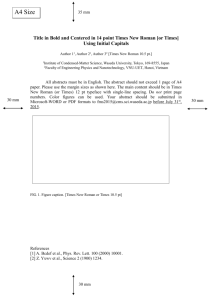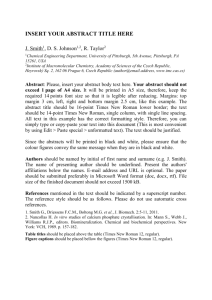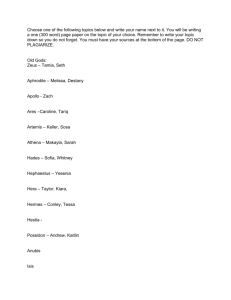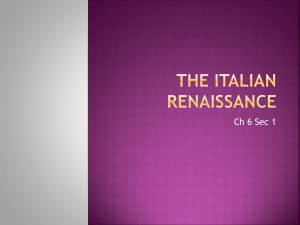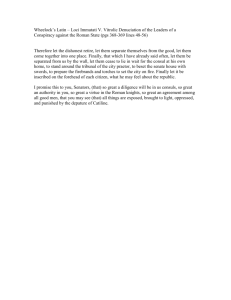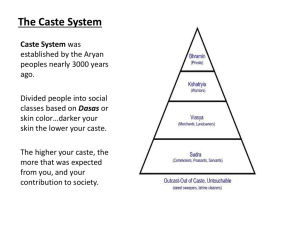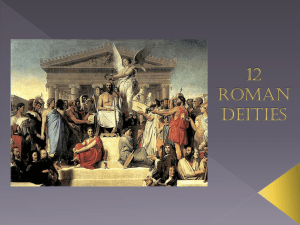1-5. What are the requirements of civilization? (order does not matter
advertisement
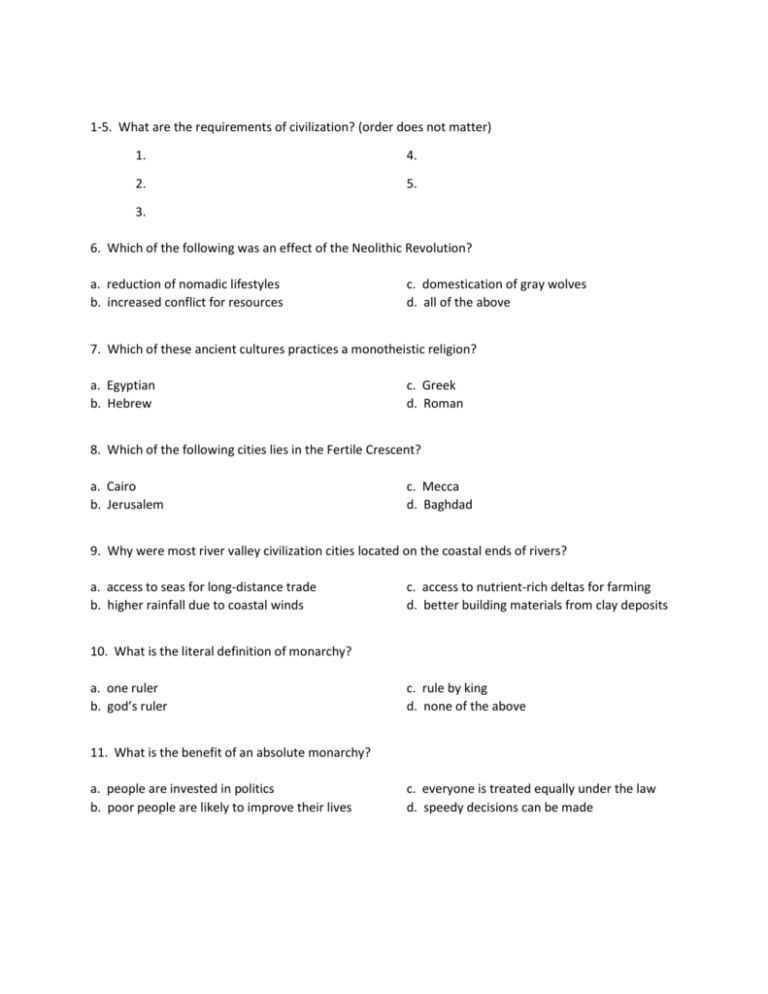
1-5. What are the requirements of civilization? (order does not matter) 1. 4. 2. 5. 3. 6. Which of the following was an effect of the Neolithic Revolution? a. reduction of nomadic lifestyles b. increased conflict for resources c. domestication of gray wolves d. all of the above 7. Which of these ancient cultures practices a monotheistic religion? a. Egyptian b. Hebrew c. Greek d. Roman 8. Which of the following cities lies in the Fertile Crescent? a. Cairo b. Jerusalem c. Mecca d. Baghdad 9. Why were most river valley civilization cities located on the coastal ends of rivers? a. access to seas for long-distance trade b. higher rainfall due to coastal winds c. access to nutrient-rich deltas for farming d. better building materials from clay deposits 10. What is the literal definition of monarchy? a. one ruler b. god’s ruler c. rule by king d. none of the above 11. What is the benefit of an absolute monarchy? a. people are invested in politics b. poor people are likely to improve their lives c. everyone is treated equally under the law d. speedy decisions can be made 12. What is the benefit of a democracy? a. people are invested in politics b. poor people are likely to improve their lives c. everyone is treated equally under the law d. speedy decisions can be made 13. Who were patricians? a. Greek aristocrats b. Roman government leaders c. Roman aristocrats d. Greek government leaders 14. What word is defined by a country’s policy of expanding its territory to outside regions? a. tyranny b. monarchy c. feudalism d. imperialism 15. During the Roman Republic, dictators were appointed… a. temporarily b. with approval from the Senate c. during times of crisis d. all of the above 16. What push factor caused the Jewish Diaspora? a. conflicts with Egyptian pharaohs b. Roman invasion of Jerusalem c. internal disagreements about Jewish law d. low quality farmland 17. What was the main purpose for constructing sections of the Great Wall? a. prove the power of China’s emperors b. define the boundaries of China’s territories c. isolate China from the rest of Asia d. protect Chinese trade routes from nomads 18. Which of the following innovations did not originate in China? a. blast furnace b. gunpowder c. printing press d. segmented arch 19. Which office held most of the real political power in feudal Japan? a. daimyo b. samurai c. emperor d. shogun 20. Which of the following is true about feudal Japan? a. it was very isolated b. culture emphasized collective needs, rather than individual needs c. government was militarized, with political powers in the hands of military officials d. all of the above e. A and B only f. A and C only 21-25. What are the Five Pillars of Islam? (order does not matter) 21. 24. 22. 25. 23. MATCH THE PERSON TO THEIR BIOGRAPHICAL DETAILS 26. ____ Martin Luther 27. ____ Augustus Caesar 28. ____ Elizabeth I 29. ____ Mohammad 30. ____ Leo X 31. ____ Tariq ibn Ziyad 32. ____ Scipio 33. ____ Julius Caesar 34. ____ Isabella I 35. ____ Hannibal Barca a. Prophet of Islam. Received holy revelations from the Angel Gabriel. b. c. Carthaginian general who fought in the Punic Wars with Rome. d. Italian Pope who excommunicated Protestant leaders. e. Arab general who led armies in the Muslim conquest of Spain. f. Queen of Castile who became a “Catholic Monarch” when she ejected the last Muslims from her country. g. Queen of England who cemented Anglican control, and led her nation in a war against Spain. h. First true Roman Emperor. Led Rome to a long period of peace and stability. i. German priest whose ideas led to the Protestant Reformation. j. Roman general who ultimately won the Punic Wars. 36. Draw the geocentric model of the universe. 37-40. Write four key characteristics of the Copernican model of the universe. (order does not matter) 37. 39. 38. 40. 41-43. Write three LOGICAL arguments in support of the geocentric model of the universe. (order does not matter) 41. 42. 43. 44. _____________________=1, 1, 2, 3, 5, 8, 13, 21, 34, 55… a. Golden Ratio b. Golden Mean c. Fibonacci’s Sequence d. Fibonacci’s Spiral 45. What ancient culture originally discovered this number pattern? a. Roman b. Chinese c. Greek d. Indian


